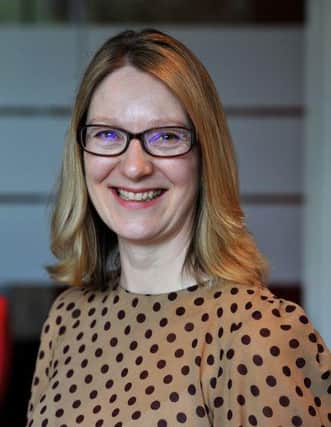Now is the perfect time to re-invent our high streets - Suzy Powell


The pandemic has changed our town and city centres, perhaps forever, however there is a strong desire by our civic leaders, Scottish Government, neighbourhood groups and businesses to breathe new life into urban communities. Now is the perfect time to re-invent the high streets for all, with opportunities to think creatively about how spaces may be used.
University of Edinburgh researchers looking into the future of the high street recently launched a toolkit for creating more liveable and successful high streets.
Advertisement
Hide AdAdvertisement
Hide AdThe researchers said: “The high street is often the social and economic heart of a neighbourhood or community – and its health depends on creating and maintaining a place that is liveable, vibrant, successful, accessible and desirable as a destination and place to go to, move through or spend time – both as a public space place, and the activities and businesses that occupy its frontages and adjacent buildings.”
Partnering with academics can enable businesses and organisations to make a positive impact on the health and wellbeing of our town centres. Interface has been matching businesses to academics for more than 16 years to help solve social and environmental problems in urban centres.
We can learn much from the tourism industry about harnessing technology and using creative thinking to develop new products and services. Breakthrough apps have been developed in response to Covid-19 which integrate train journeys with ordering food, find travel solutions in the Highlands and Islands and, of course, contactless payments have become the norm.
SENSECity founder Pooja Katara has cleverly incorporated augmented reality into an app for visitors to cities. Partnering with The Glasgow School of Art (GSA) through Interface, Pooja developed the app for walking tours which mean that more than 15,000 people have seen Glasgow through augmented reality. She continues to work with GSA in a collaboration with City Sightseeing bus tours in Glasgow to bring to life the stories of the people and places en route using AR technology, attracting people to sightseeing tours who may not normally use the service whilst promoting city centres and high streets.
Travel for people with disabilities to towns can be difficult, particularly connecting between public transport services. Academic input was invaluable for an ambitious project which brought together disabled people with transport staff to explore connections from rail stations to ferry terminals and co-design solutions. Much can be learned from projects like this to improve access for people with disabilities travelling into, and around, cities and towns.
Led by Go Upstream, a training and design programme for transport providers, and funded by Transport Scotland, the partners were introduced by Interface to OPENspace Research Centre, based in the University of Edinburgh and Heriot-Watt University, which contributes evidence on why inclusive access to the outdoors matters.
A key benefit was the ability to use OPENspace’s monitoring and evaluation results informing the design of the project approach and tools.
There are many innovative ways in which academics and businesses/organisations collaborate to bring about change to our daily lives, wherever we live; cities, towns or country.
More case studies can be read at www.interface-online.org.uk/case-studies
Suzy Powell, PR & Communications Executive, Interface
Comments
Want to join the conversation? Please or to comment on this article.